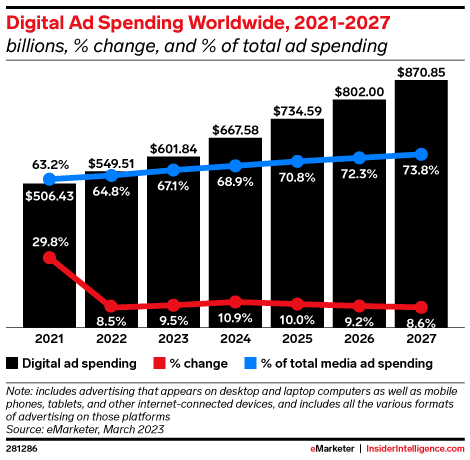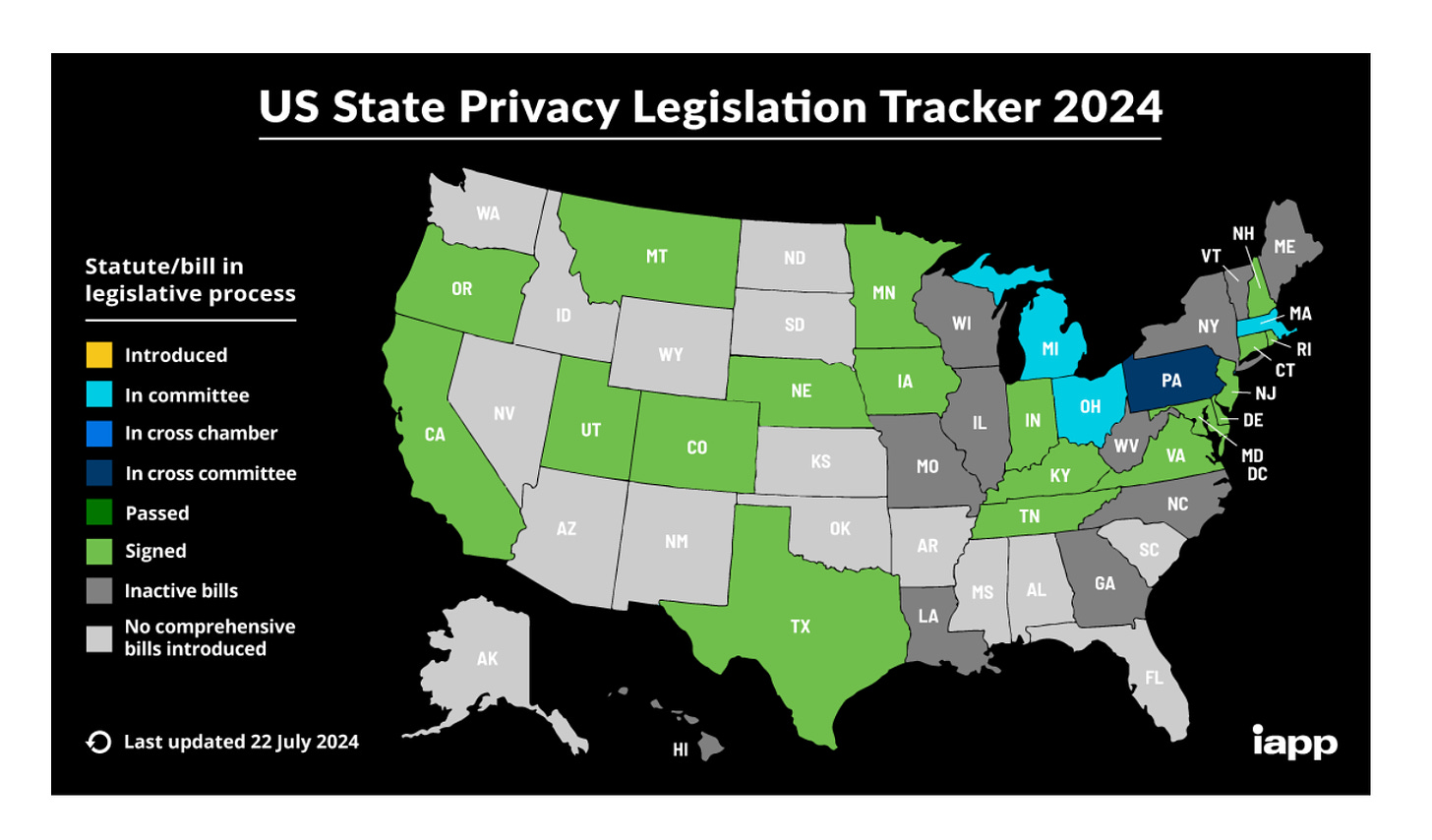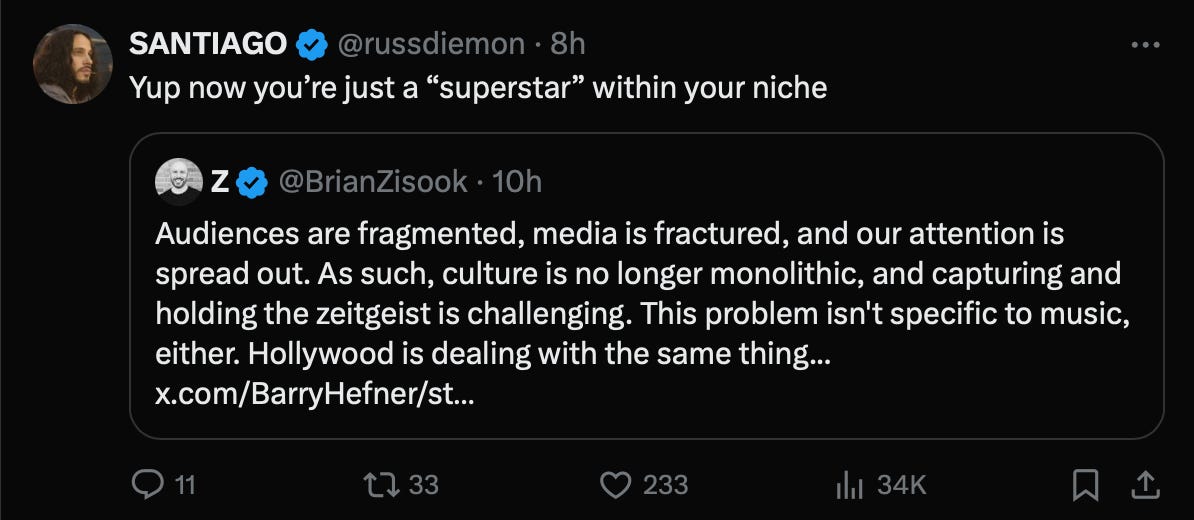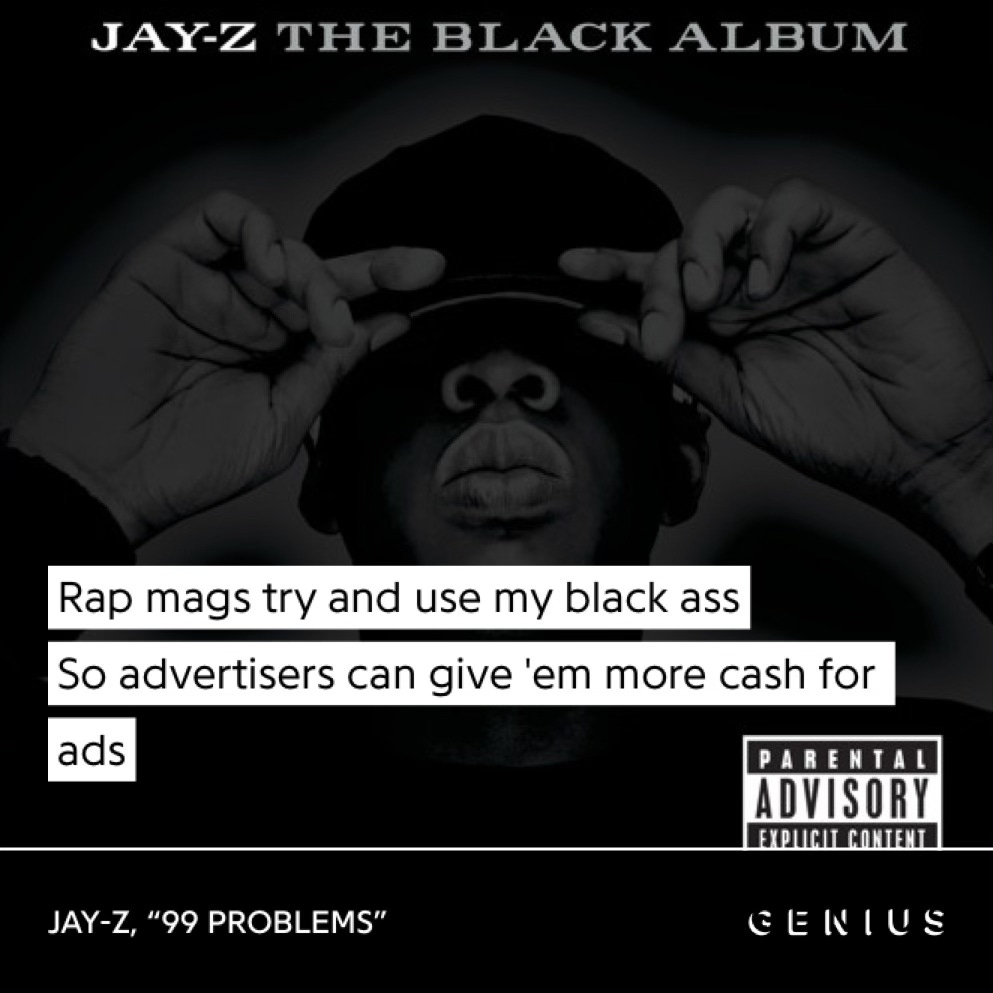RAP MAGS AND DIGITAL DOLLAR$ [PT. 1]
A Look at the AdTech Opportunity in Media
The race to commercialize the internet is over, advertising is the big winner
Matthew Crain, ‘Profit over Privacy: How Surveillance Advertising Conquered the Internet’
On July 4th, 2013, Jay Z released his 12th studio album Magna Carta Holy Grail (“MCHG”) in partnership with Samsung. The deal was for a reported $5m (and part of a larger ~$20m deal between Samsung and Roc Nation) with Samsung purchasing one million copies of the album and making it available to Samsung Galaxy S3, S4 and Note 2 owners on an app for free. MCHG was certified platinum on the day of its release; would go on to debut on the Billboard 200 chart at #1, selling 528,000 (additional) copies its first week; and ultimately sold over three million copies in the United States.
At the time, the reception was mixed. There was clear demand (the app itself had a reported 20 million hits), and some, like Business Insider, heralded “Jay-Z’s $5 Million Samsung Deal Will Change Music Forever”. Others felt Jigga was “cheating” by negotiating a deal that allowed his album to be immediately certified platinum.
Did Jay Z cheat?
I don’t think that’s the question. I think the question is: what game was he playing and what game were the others playing?
Let’s get into it.
MONEY DE$K
I’ve been working a lot with clients in the digital advertising space this year; and I’ve been digging to understand more because this space is only going to get bigger. According to statistics, digital advertising will be a trillion dollar industry in just a few years.
As part of that initiative, I recently completed an Executive Online Course from The Trade Desk. You can view all of their (free) courses here. I also took a few notes:
The way we consume media (television, journalism, music, movies, and sports) is being redefined by the internet;
There’s a movement to increase data sharing across the internet. This is known as the Open Internet, and allows for the widespread use of first party data in conjunction with second and third party data.
First Party Data - data directly collected by businesses from their existing customer base (e.g. visitors to sites and stores).
Second Party Data - data owned and collected by one party, and shared with another (e.g. where one brand chooses to share their own first party data with another company). This often happens where brands with similar target audiences or products receive a material benefit from sharing their data with each other.
Third Party Data - data that is available for broad use across the ecosystem. This is data that is often used to “enrich” first and second party data and which provides further insights to first and second party data (e.g. data insights that help brands and companies understand consumer purchase and site visitor behavior).
Customers are suffering from subscription fatigue, and advertising (powered by underlying data) provides for a commercially beneficial alternative; with customers willing to accept ad-supported media in exchange for lower cost (or free) content.
An interesting thing about the course was that, during one session, I listened to these guys talk and they quoted Drake while talking about technical digital advertising matters. It felt like confirmation of my path. A couple days later, I watched a podcast with Daniel Ek (founder of Spotify) as he talked about how he grew up in the projects of Sweden and learned English by watching Yo MTV Raps, MTV Cribs, and listening to rap music. It was fascinating, because it’s clear that culture, like hip hop, influences business (whether technology or otherwise); and that’s a large part of why I wrote this article:
Creators have an, unprecedented, opportunity to position themselves in ways they traditionally couldn’t before. They have an opportunity to own and leverage their first party data, and partner with brands and third parties in ways that are commercially beneficial for everyone. Remember my last post? I said data is not a bad thing (s/o Money Mike at Substack). Data is the new oil (cliche, I know); and is an essential part of how money is made in digital media.
This is largely why we’ve seen a rise in podcasts from athletes, artists, and other influencers. It’s not just that podcasts are trendy (that’s true); but it’s also the commercial opportunity that exists for creators, advertisers, and brands who can partner together - particularly where these creators are able to attract “stickier” audiences because of their unique insights, experiences, and personas.
I’ll cover that later, but here’s a solid interview I recently watched, featuring the CEO of Revolt, Detavio Samuels. Revolt has launched a number of successful shows and podcasts with several recording artists and influencers; becoming a “9-figure media business” along the way.
In the interview he talks about how Revolt makes money (e.g. it’s linear and ad businesses - which have grown 6x since he’s taken over). Essentially, a large part of their business is tapping into culture by creating programming, which cuts through, and partnering with brands looking to advertise to culture; in addition to working with brands directly and creating bespoke content for them.
He also talks about how, as a network, Revolt is able to negotiate more lucrative deals for their creators (whether through CPM or other metrics) due to the data and insights they collect.
Marketing Breakdown
Before we continue, it’s important to understand why all of this is important. As the quote says, “there’s more information than ever before; but less wisdom than ever”. Not to get philosophical, but this is also why you’re seeing so much disillusionment, depression, and confusion out here. As people, we often do things without connecting who we are to the thing we do; and we often do and build things without understanding (or meaning) behind what we’re doing. That’s always a recipe for disaster.
Data, particularly in digital marketing and advertising, is important because if you’re doing something meaningful for others then you should know who those people are and what they want so that you can continue to serve them, make more money from serving them - so you can continue to serve them (and yourself).
We don't make movies just to make money, we make money to make more movies
Walt Disney
The use of data in digital advertising is simply an ancillary revenue stream; and consumers, in general, have shown that, as a trade-off, they’re willing to pay less in exchange for ad-supported media.
The key question, in my opinion, is how do we balance the integration of digital advertising with the user experience and artistic integrity?
See, people often have an adverse reaction to advertising, marketing, and sales, and view them as being “cheap” or “dirty”; but they’re neutral (just like money). In, and of themselves, they’re simply tools. It’s the intent and person behind it that determine the impact of the tool - whether good or bad.
We all market, advertise, or sell in one form or another. A job interview is a sales pitch. Social media is marketing - no one (who’s sane) puts all of their dirty laundry on social media, most people usually present themselves as they would like to be perceived; irrespective of whether that’s reality or nah. And if you're in business and you don’t advertise then how do you expect to make money? Even word of mouth is a form of marketing and advertising.
“How are they to call on someone when they haven’t believed in him? And how are they to believe if they don’t hear? And how will they hear without someone announcing it to them?”
- Apostle Paul
My main reason for writing these articles is to get these thoughts out of my head, and to think clearer about things. But I also write as a form of content marketing; as a way to convert a few of you in one way or the other. There’s nothing wrong with that.
Where advertising or marketing becomes an issue is when it hurts the customer or customer experience.
For example: as a young, twenty-something, immigrant man, I had to stay in college because my immigration status was ahh.. up in the air. So after my bachelors degree, I got my masters. After I completed that, I began looking for jobs; but didn’t have a lot of corporate experience. One of the jobs I did find, and which was willing to interview me, was a “marketing” job (or so I thought). Upon arriving at the interview, I found out that the job wasn’t actually marketing, but rather selling car wax, and other car products, outside of gas stations.
Sure, I’ll take it.
On my first day on the job, and as a training exercise, I drove with a co-worker from Atlanta to Tennessee; and set up shop at a gas station as he showed me the ropes. We stood outside, all day, under the 95 degree sun; and I watched as 99% of people declined his sales pitch.
The only person who agreed to buy car wax was then, immediately, bombarded by “up sale” pitches from my co-worker who kept trying to sell the customer more products… even after the customer expressed that he only wanted the car wax. The customer eventually got fed up, declined to buy anything and drove off angrily.
That was an example of bad marketing..
I quit the next day.
I applied to law school =)
Privacy Breakdown
The broad access to data, through the internet and digital media, is important because it creates more opportunity for brands and advertisers to not only reach their customers; but to also understand their customers.
For example: let’s say I own a pet store. I might pay the local city fair $5k to advertise at the fair; but if they give me data that shows 90% of people who attend the fair also buy pet food 2x - 3x a month then this makes the advertisement opportunity more attractive for me, and more valuable for them. Instead of paying $5k to advertise, I might pay $30k because they’ve proven that their audience is directly related to my business. That’s the power of digital media, advertising, and data.
But when we discuss digital advertising, an important element is data privacy.
After Jigga and Samsung’s release of Magna Carta Holy Grail, they received scrutiny regarding the privacy practices of Samsung. The Electronic Privacy Information Centre (Epic) accused Samsung of implementing software that was “unnecessarily invasive” and did not offer users meaning full choice in terms of Samsung’s collection of their data.
“Around 1.2 million people installed Samsung's Android-enabled Magna Carta app, affording them early access to Jay-Z's new LP. In order to install the program, users reportedly had to agree to give up details of their location, phone call details, networks and other apps on their phones. They also had to sign in through Facebook or Twitter and give the Magna Carta app permission to post on their behalf.”
While Samsung denied their MCHG data collection practices were materially different from other products and standard practices, what’s clear is that the prospect of collecting data on millions of Jay Z fans, rap enthusiasts, or the “urban demographic” in general, was a valuable and material aspect of the $5m deal between Jay Z and Samsung.
It also points to why data and data privacy education are important. First, it’s important because it shows you how valuable data is today. Secondly, it’s important because it allows citizens to protect themselves and hold bad actors accountable.
There are privacy laws, both domestic and international, which govern the collection and processing (use) of personal data. While there are differing definitions of personal data, it can include things like your name, email address, IP address, physical address, race, sex, religion, health conditions; and other forms of personal data that are collected when you visit a website, scroll on a social media platform, or watch a media program (particularly on a connected (smart) TV device). This data is often collected for various reasons including, but not limited to, operation and maintenance of the platform, to sell you products, and/or sell your data to other companies that want to sell you products.. through advertising.
The requirements of these laws vary in terms of (i) jurisdiction (e.g., European Union, United States, Nigeria) and (ii) obligations (e.g. the various ways in which companies are required to notify you and/or obtain your consent before collecting and processing your data). These laws often require companies to disclose what they do with your data. These disclosures are usually provided in the Privacy Policy and/or Terms of Use section(s) of company websites. Here’s Netflix Privacy Policy.
Bring It Back Up
At the end of the day, there’s opportunity in digital media. When you see music videos on YouTube, ads are being sold against them. When you see music streaming on Spotify, ads are being sold against them. When you watch Netflix, ads are being sold against the programming. And each of these platforms are collecting personal and usage data from their customers; and performance data from the content hosted on their platforms. This data collected enables them to not only understand what content is performing well on their platforms; but to also sell ad space to brands and companies who want to target the platform’s customers.
My question is whether creators are paying attention, whether artists have access to the data these platforms and companies collect (in order to leverage it for themselves), and whether influencers are taking full advantage of the opportunities that exist in digital media. If not, why not?
When I view this space, I see that the old siloes don’t exist anymore, at least not like they used to. The internet has provided unprecedented access to, and interconnection of, media so that creators have few restrictions on what they can create, outside of their own creative limitations. In a very real sense, this means there is no music industry. There is no sports industry. There is no film or television industry.
There’s the media business: which includes music, sports, film, television, literary, and social media sectors.
Of course, there’s still medium-specific art and craft; but, on a macro level, it comes down to the 5Cs.
Creativity;
Communication;
Conversations;
Collective audiences; and
Companies looking to extract money from audiences as a value exchange.
On a corporate level, it’s all media; and that’s the game Hov was playing when he released Magna Carta Holy Grail w/ Samsung.













